Geek or chic
Should you be board gaming?
Long the butt of jokes and playground names, board gamers are on the rise
Peter Wolinski became one to see if we should all be joining in
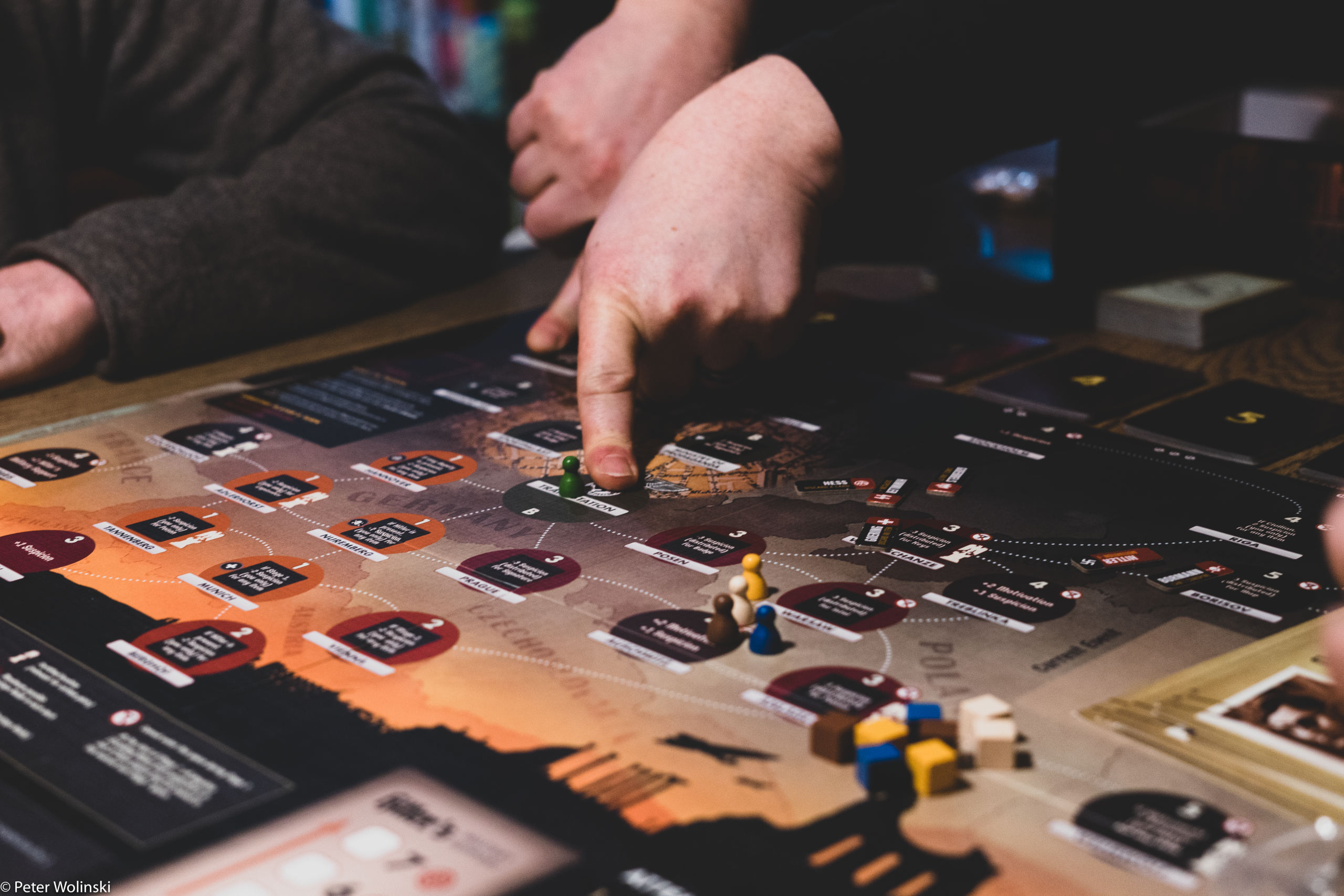
2020
Society has accepted the maturation of video gaming. Esports stars are now idolised like conventional sporting icons, and can bag themselves bigger prize pots.
Multiple generations subscribe in droves to video gaming YouTube channels where they watch other people play, sometimes instead of doing so themselves.

The largest of such YouTubers, PewDiePie (AKA Felix Kjellberg), currently has over 104 million subscribers; only 13 countries worldwide have a population greater.
It is now socially acceptable to be a serious video gamer, despite the hours of screen time and dark-roomed isolation that entails.
The same can’t easily be said for board gaming, which has always been seen as a geeky, withdrawn activity.
It is a reputation that is somewhat unfair. Flagship franchises like Magic: The Gathering have long had their own six-figure prizes and, usually, board gaming is an inherently more social than lonesome activity. There aren’t many fun board games to play on your own, after all. Nevertheless, in stark contrast to Kjellberg, the largest YouTube channel for board gaming, Shut Up and Sit Down, has under 300,000 subscribers.
In short, video gaming is cool and conventional, while board gaming is seen as nerdy and niche.
I’d noticed, however, in the few years leading up to 2020, that all things analogue were becoming more conspicuous. Film cameras were back on shop shelves. The British Phonographic Institute had reported increased Vinyl record sales year on year. And there were board game cafes visibly appearing in cities nationwide.
People seemed to be craving something real in the digital age.
Did this mean board gaming was becoming popular, even cool? To find out, I decided to hop along to an open gaming night at a board game cafe. I wanted to see if it was nerdy or vogue, to talk to players and see how open they would be to outsiders. Most importantly, I wanted to see if everyone else should join in too.
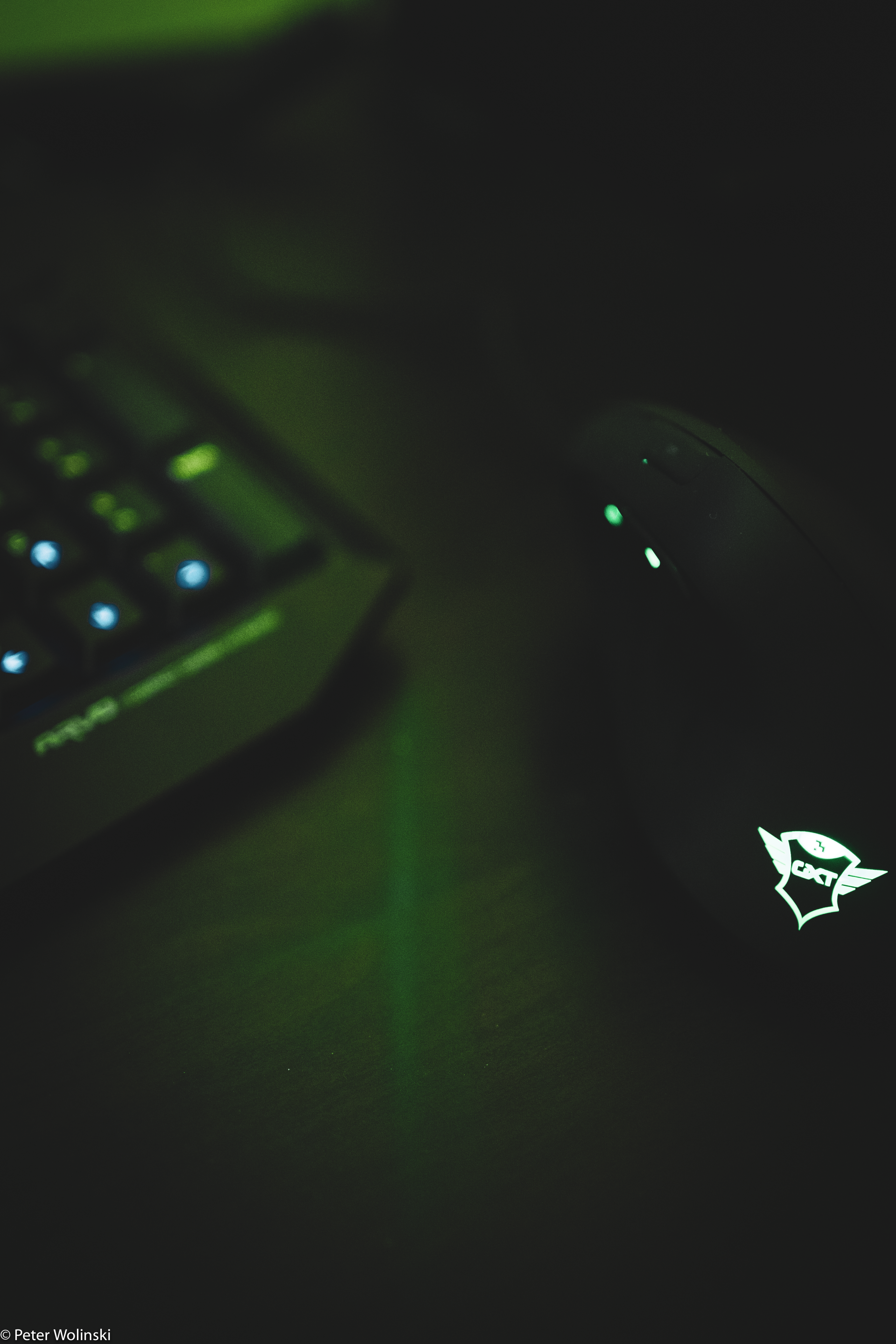
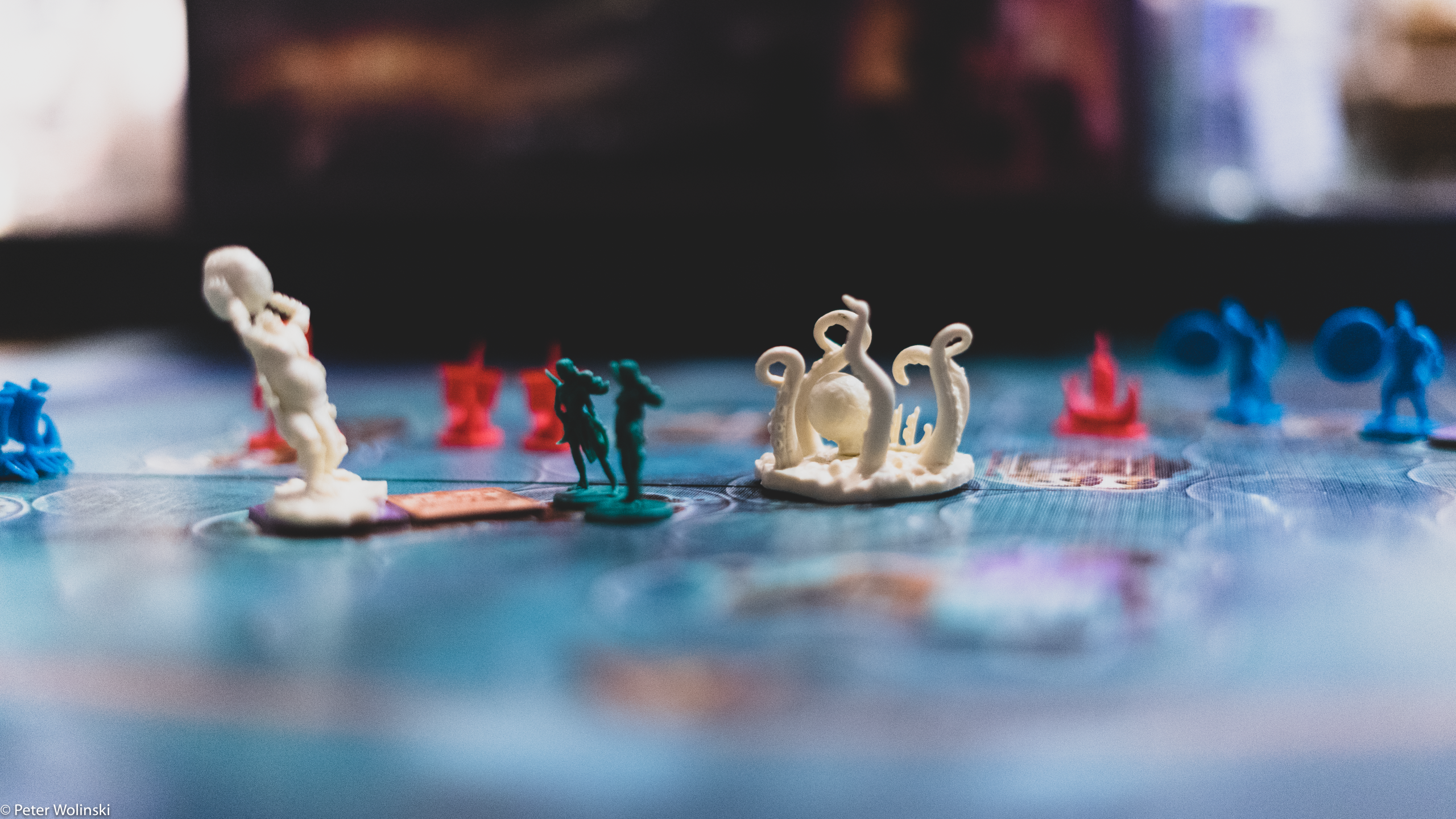
There's a game for everyone!
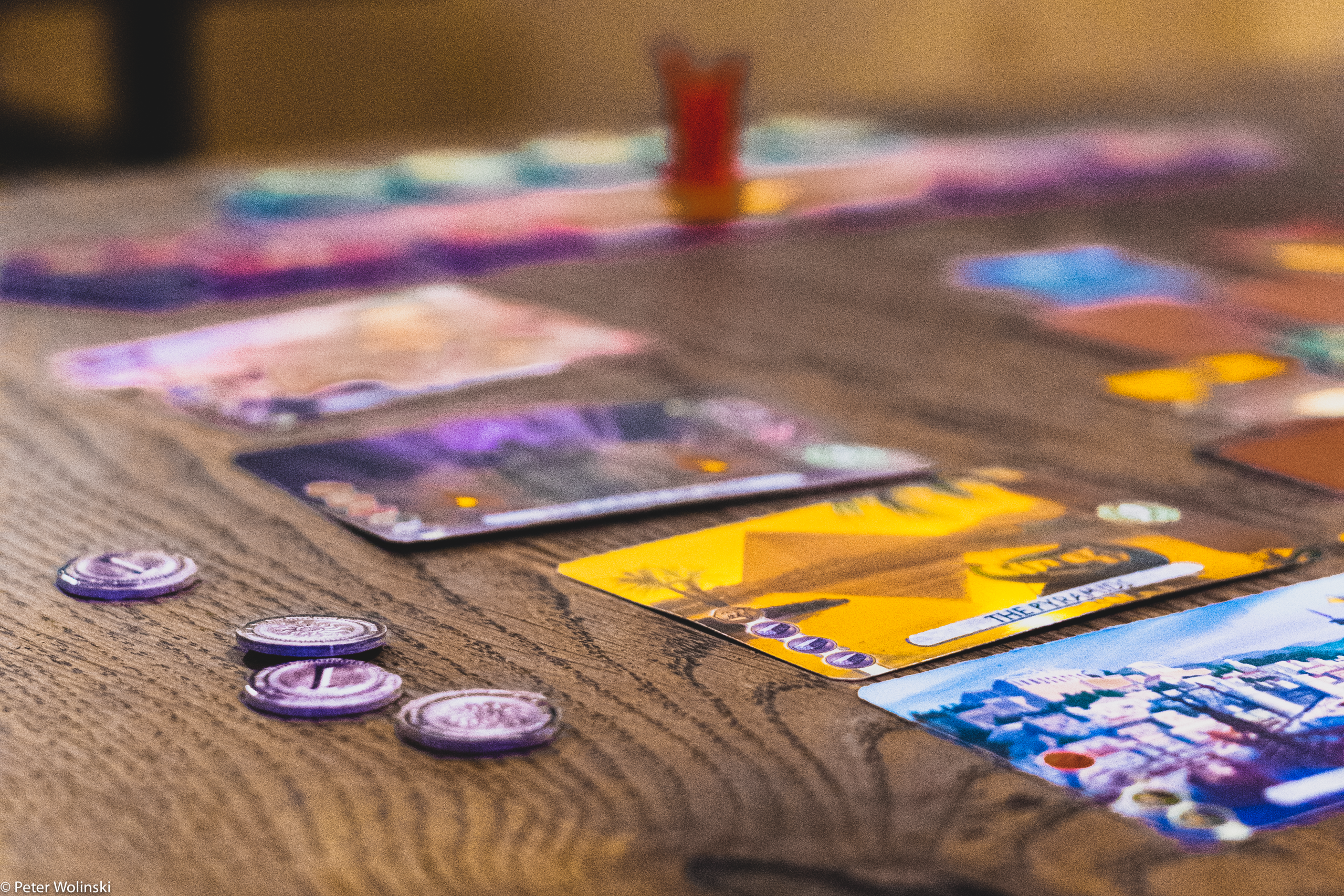
One Monday night, I set off on the ten minute walk through Cardiff to my local board gaming shop. I’d been told by the manager to come along an hour before the open night kicked off, to meet some regulars before accompanying them 50 yards to the gaming cafe where we'd spend the evening.
It was during that little pre-party that I met Tom Burmeister, a board gaming events organiser and the man in charge of the night’s escapades.
"It gets people off their phones, away from the false environment they have created"
With a vivacious character and a loud, deep voice, Tom was a far cry from the usual perception of a board gamer. He told me board gaming has seen a rise in popularity in recent years. I asked him why.
“Because it gets people off their Phones, away from the false environment they have created and into an actual, tactile experience,” he explained. “But also because there’s a niche for everyone.”
After his last point, I suddenly took in my surroundings. I was standing surrounded by three entire walls, stacked ceiling high, of every type of game you could imagine.
There were trading and cooperative games for making friends and combat games for destroying them. There were worker placement games to simulate being the secretary of state for agriculture or grand strategy nation builders for wannabe dictators. There were lonely single-player games or eight-player all-nighters. There was something for just about anyone.
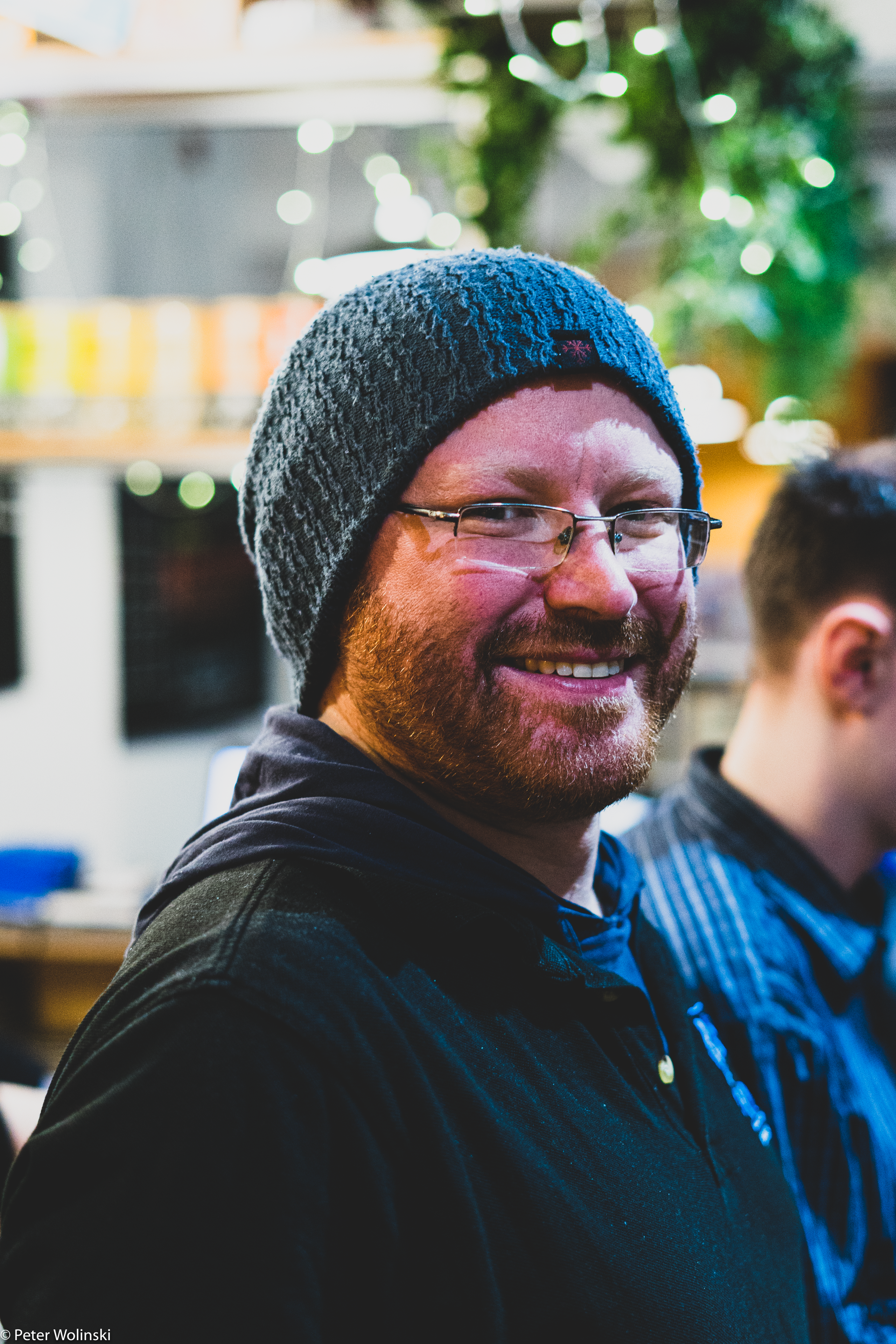
Tom Burmeister, a board gaming events manager
Tom Burmeister, a board gaming events manager
It’s no longer niche
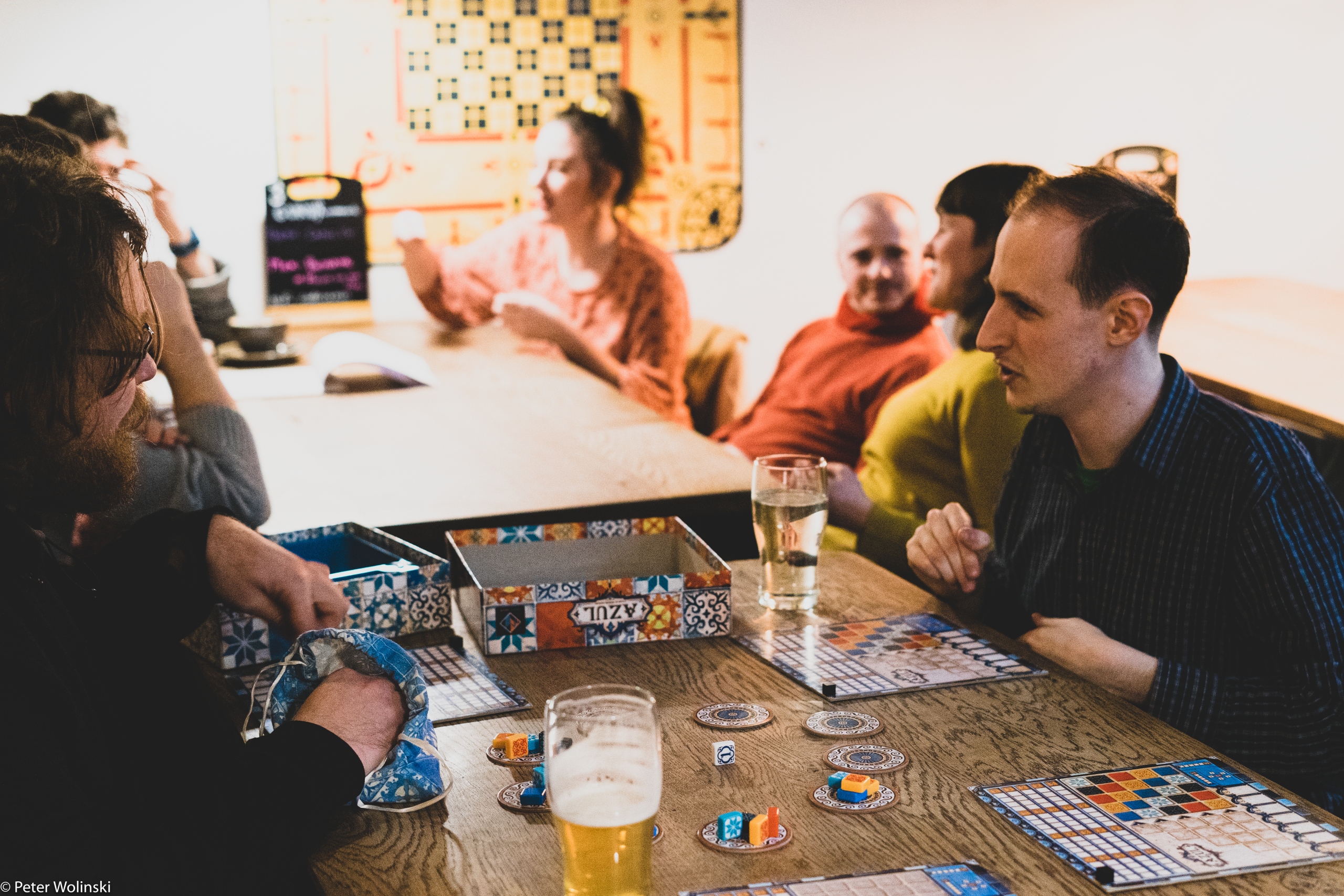
Tom then introduced me to Daniel, a radiographer from Hong Kong who had recently moved to Cardiff and who asked not to be photographed or named fully. A single man in his 30s, Daniel was more like the board gamer stereotype I’d been expecting: steamed up glasses, dishevelled hair and a propensity to laugh at his own Battlestar Galactica jokes before launching into unsolicited, long-winded explanations of highly detailed game mechanics.
As we walked toward the cafe we discussed the reputation of tabletop gaming. Daniel was a self-confessed geek, but he stressed that not everyone involved fitted that stereotype. The vision of basement-dwelling weirdos might still be true in extreme instances, he told me, the world is a big place afterall. But in reality, board gaming is now a popular and fashionable social pastime, with all types of people getting involved.
As we arrived into the cafe, that was demonstrated instantly. Ahead of us were four tables of open night regulars. Just beyond them there were five female students, not long out of a hockey social, revitalising with chicken wings and diet coke while braving the oceans in a seafaring pathfinder game called Tsuro. Next to them were a middle-aged couple on what looked to be a date, enthusiastically undertaking the novel mating ritual of engaging in a round of Battle Sheep.
After navigating past my fourth ceiling-high games wall of the night and up another flight of stairs to the toilet, I passed by a group of 8 young professionals playing a raucous game of the nation building title, Catan, in amongst a tabletop of spent wine bottles.
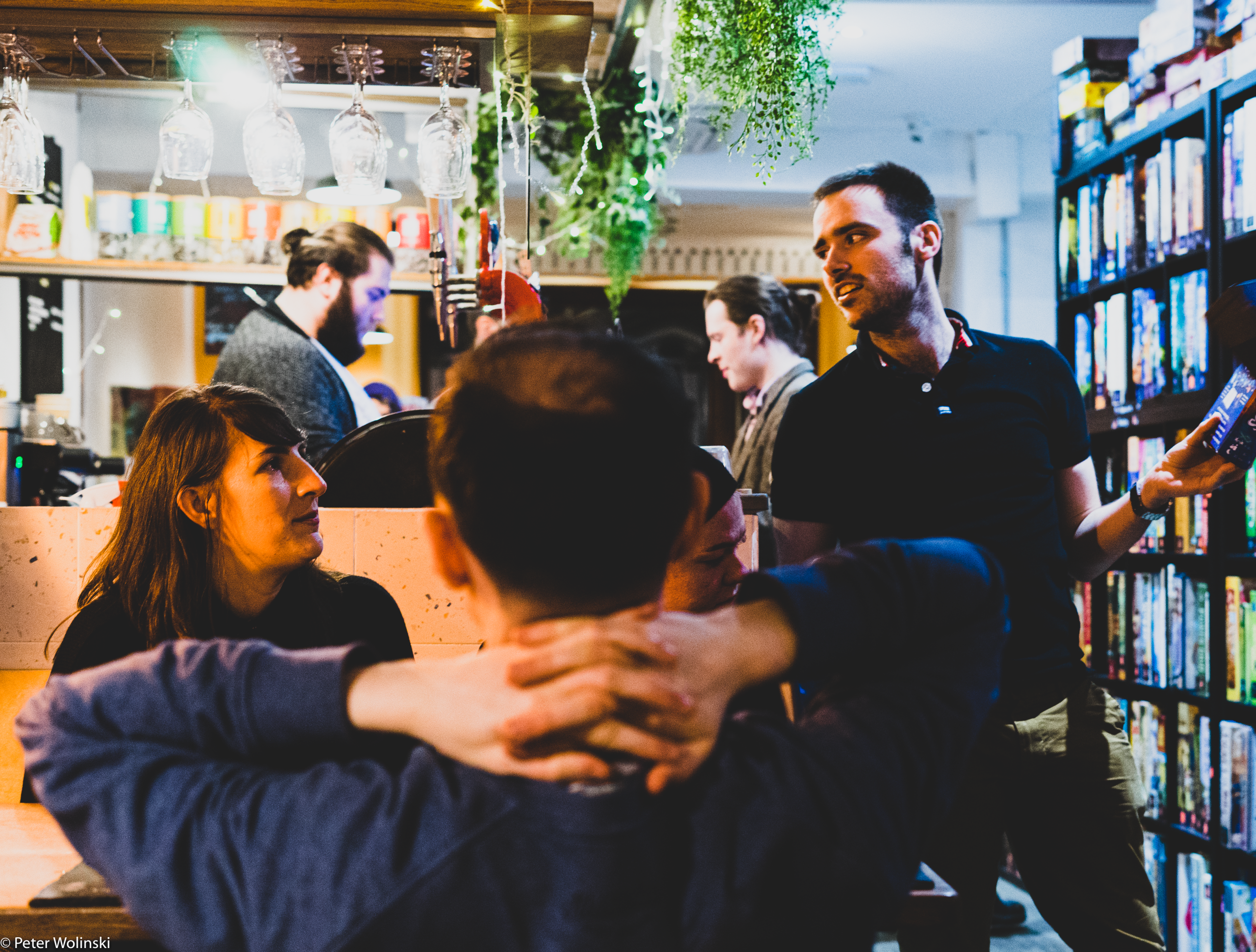
“How did you get into board gaming?” I asked Daniel as I returned and we began setting up our first game of 7 Wonders: Duel, where we would play as ancient powers fighting for supremacy in warfare, technology and infrastructure.
“Like most people,” he replied. “I was introduced by someone and got more involved the more I discovered.”
At school, Daniel was introduced to Citadels, a beginner-friendly deck builder where players compete to construct buildings. By the time he moved to the UK for university, Daniel was starting to play more in-depth titles but found his friends uninterested.
“I realised I didn’t have enough friends to play the games I liked,” he shrugged. “That’s when I started going to board game cafes.”
Now things are different. While gaming cafes used to be the only way for Daniel to play obscure games, they’re now primarily a place for him to socialise in a new city. Today, people want to play those games with him, and not only the like-minded but the general public too. Gaming cafes and their clientele are no longer niche.
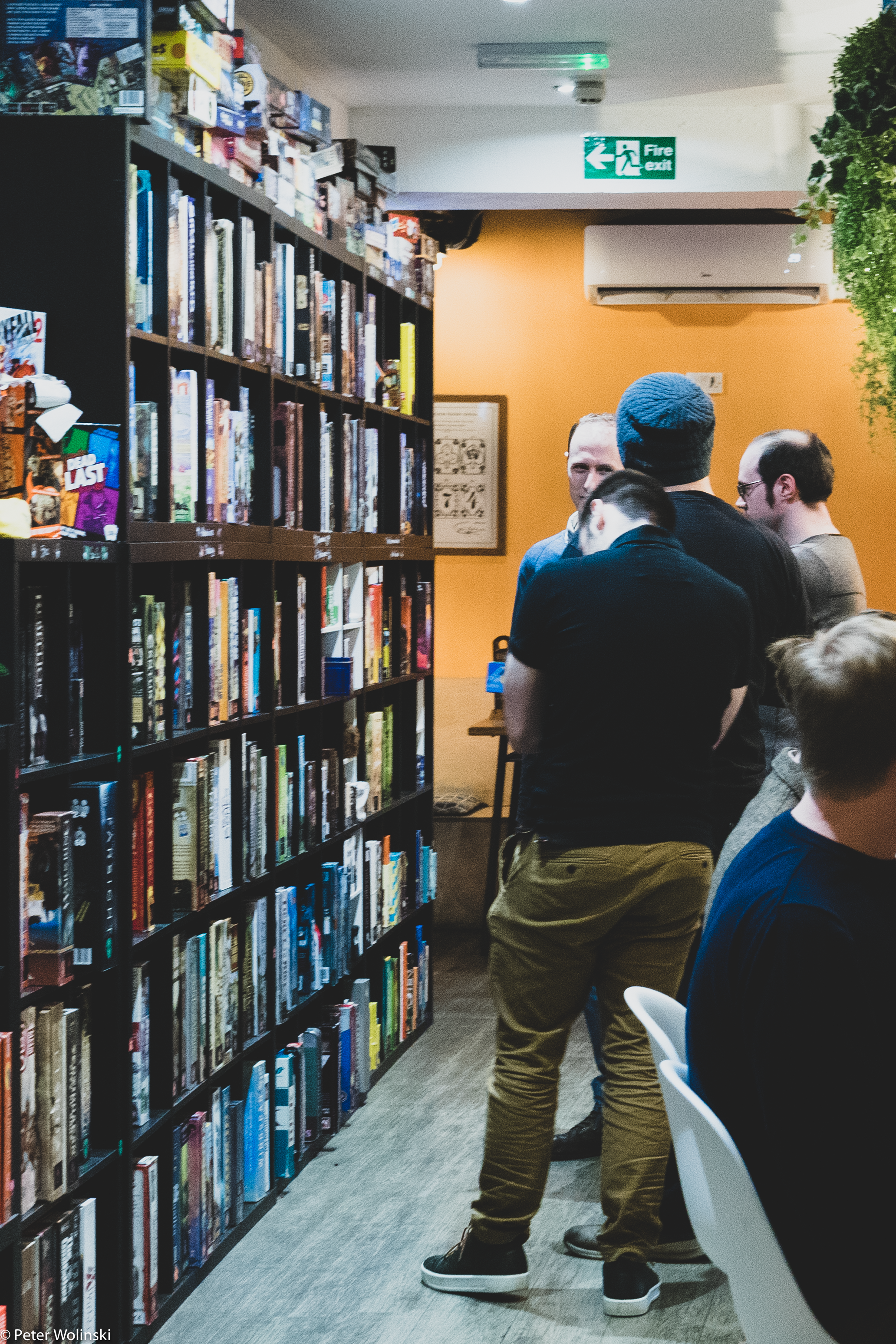
Everybody's welcome
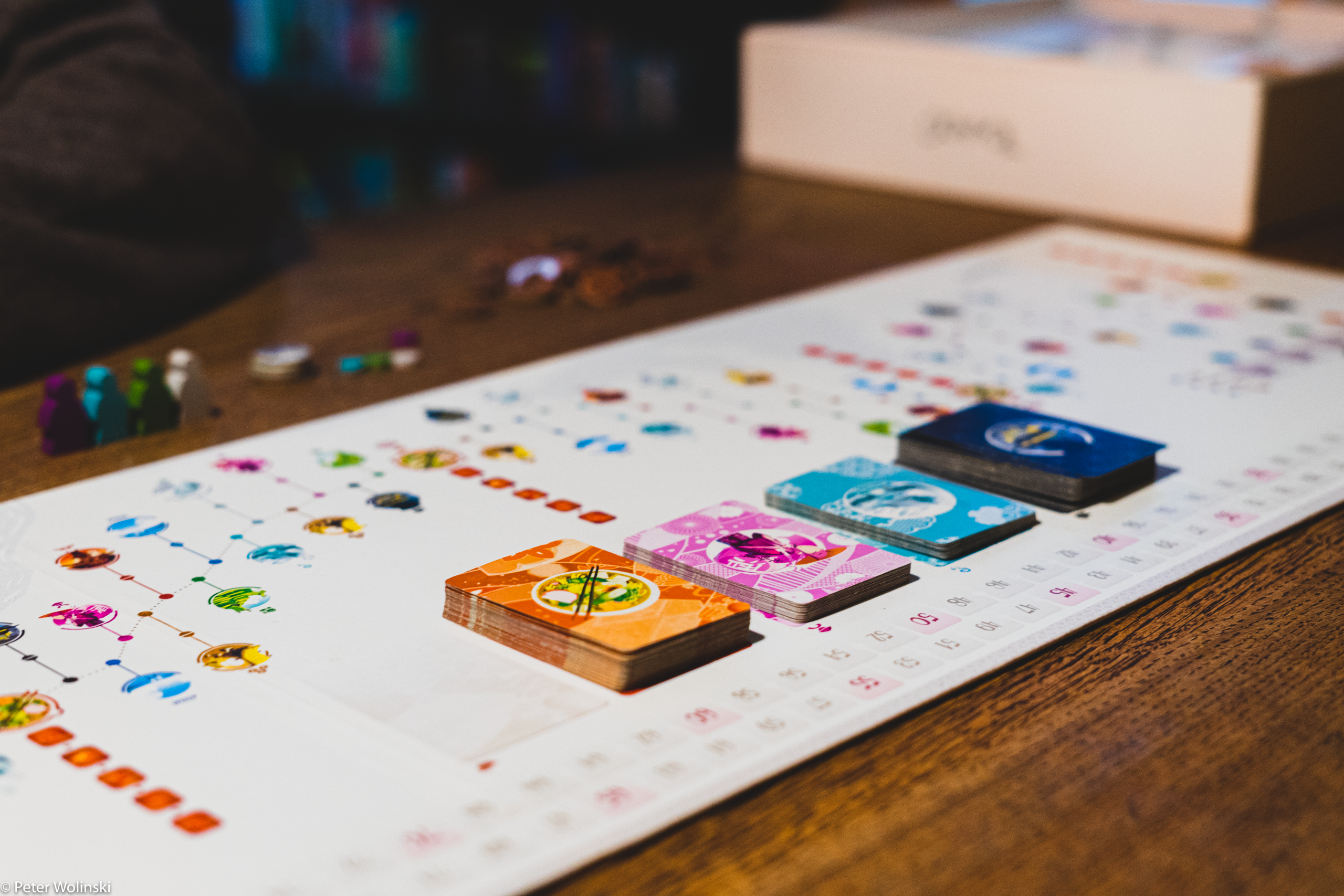
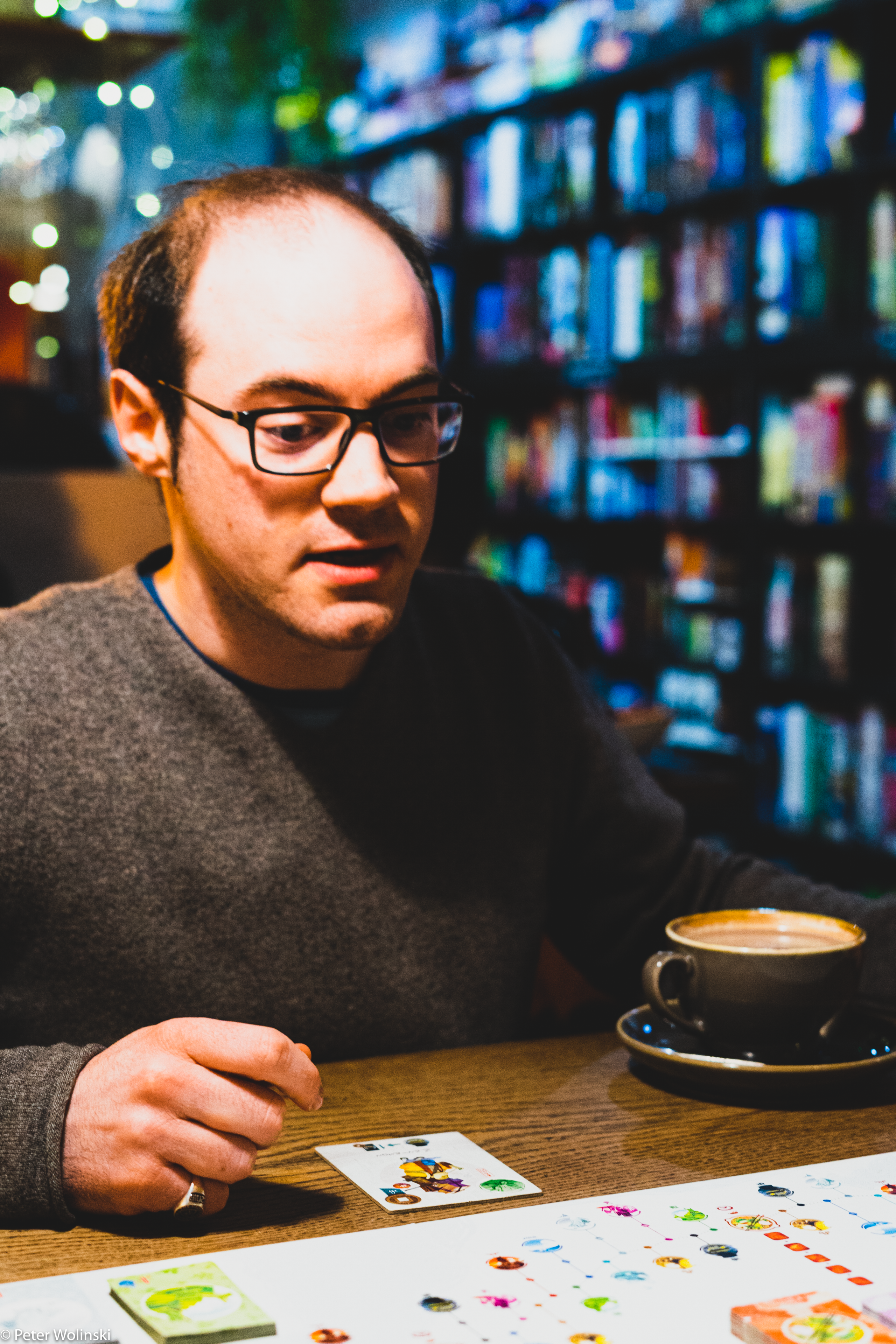
Rob Miller, an IT technician
Rob Miller, an IT technician
After slamming me several times at 7 Wonders, Daniel suggested we find a larger game. Tom jumped over to a table of six and asked whether anyone would join us. At first they offered to start their game again with us included, before one suggested joining us to play as a three instead. We agreed.
"I have asperger's... This is my major social event and I'm glad I found it because I've always struggled going out and meeting people"
Rob Miller, a 28-year-old IT technician from Cardiff, sat with us to play Tokaido, a beautifully designed game where we would race through feudal Japan to a final point on the board, hampered by the technology, culture and wealth of other players.
I asked his thoughts on the social side of gaming.
“It’s seen as a nerd thing,” he told me. “And to an extent I won’t deny it. There are a lot of Star Wars games on the shelves and heated discussions about Doctor Who.
“But it is actually a social activity — something you do to meet people or with friends over a drink.”
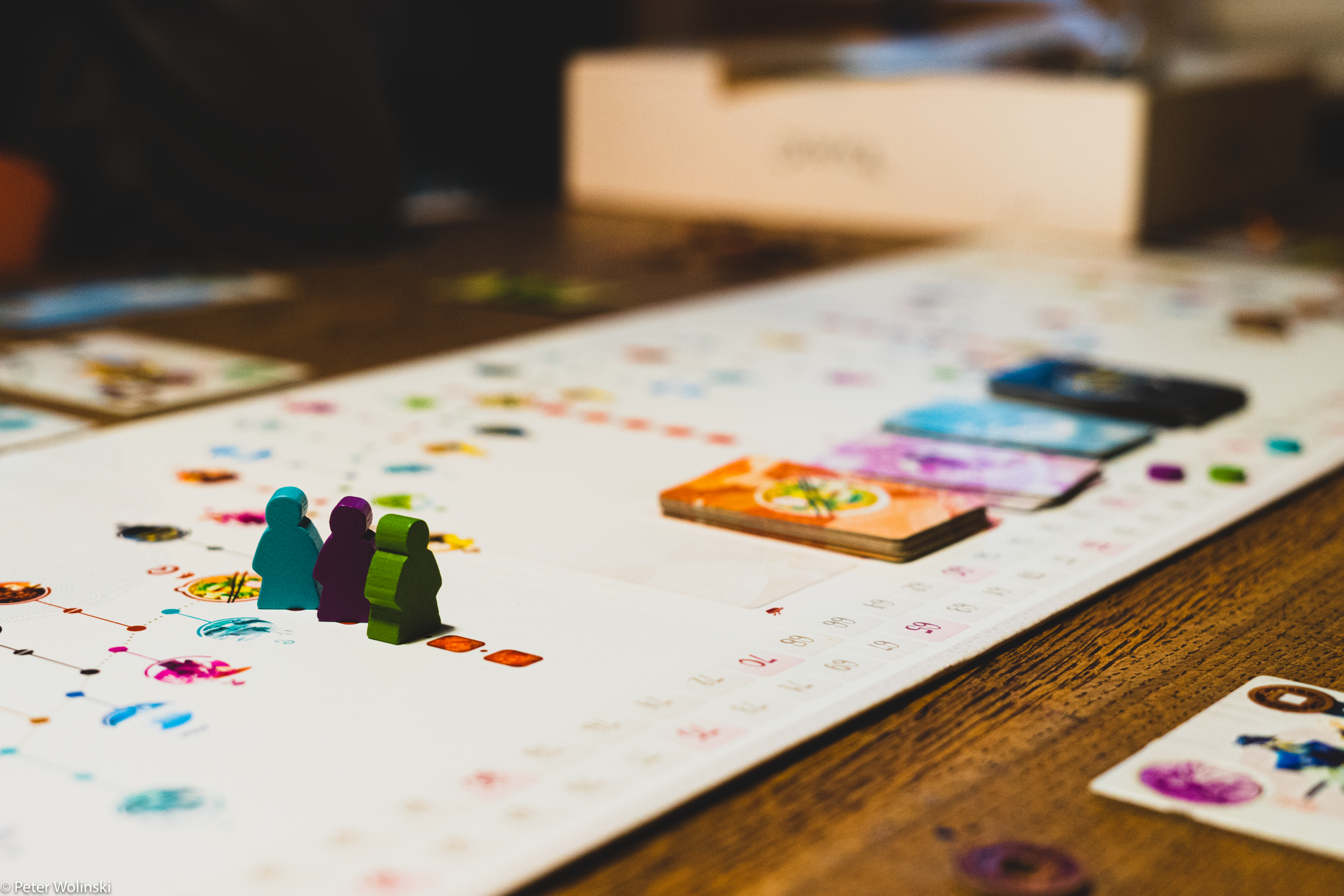
Tokaido, a game where players race against each other through feudal Japan
Tokaido, a game where players race against each other through feudal Japan
And it is the social side of board gaming, its inclusivity and the friendliness of the players which have kept Rob attending.
“I have asperger’s, a form of autism,” he explained. “This is my major social event and I’m glad I found it because I’ve always struggled with going out and meeting people.”
It was an inclusivity I had felt too. I walked in knowing nobody and taking pictures while asking everyone questions. Yet nobody had complained or shyed away; they’d just gone out of their way to help me fit in.
You can kill Hitler
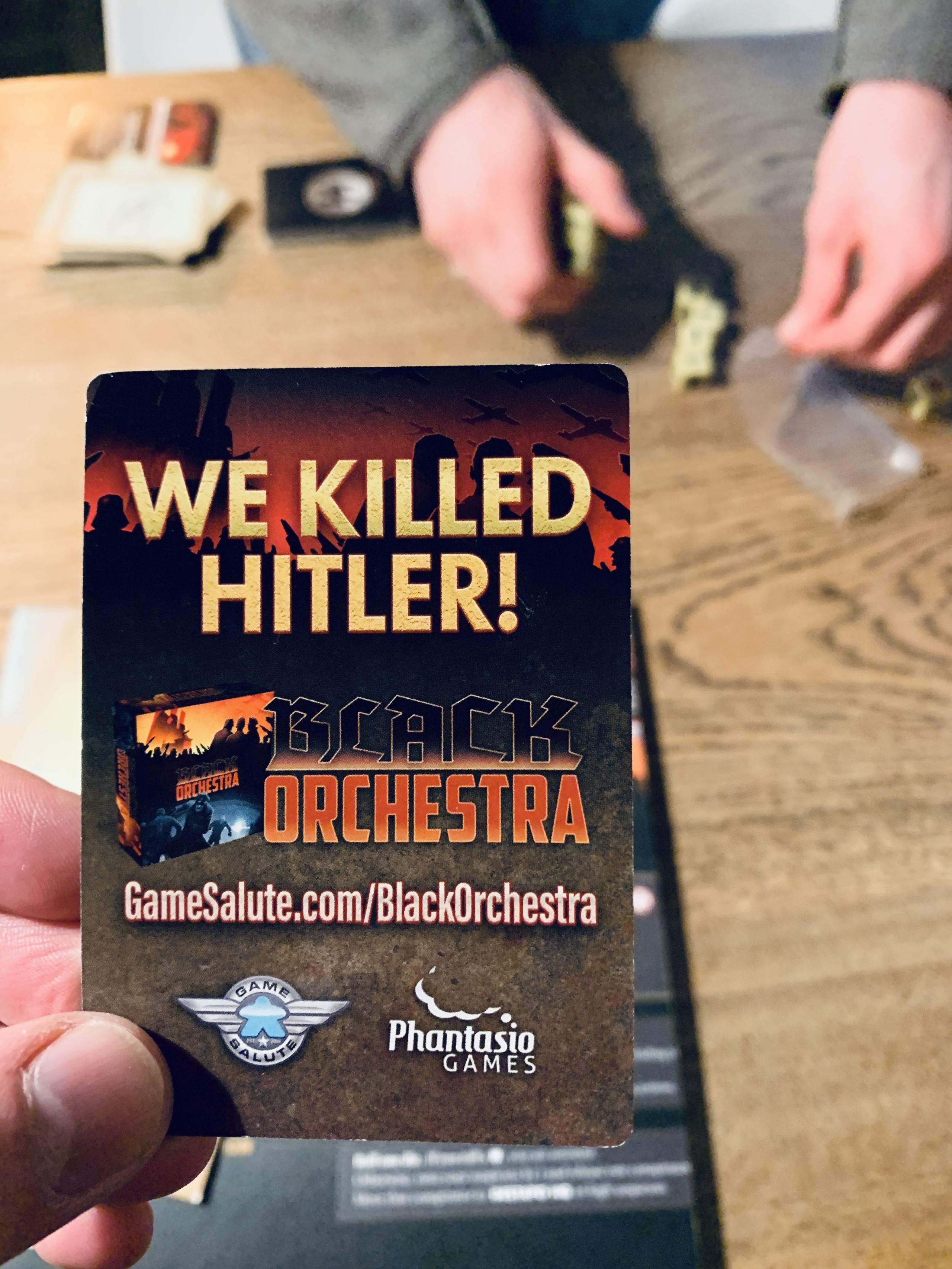
At 10pm it was time for our final game. The others settled on Black Orchestra, a historical cooperative where players use their special abilities in conjunction with those of their allies to bring together a plot to kill Hitler against overwhelming odds.
It involved teamwork, strategy, compromise, memory and opportunism - if ever there was a better demonstration of an all-round intellectual and social pursuit, I haven’t seen it.
After 2 hours and several failed plots, we were no closer to killing him. Daniel was verging on being discovered by the Gestapo and Rob had fled to Switzerland. Low-key attempts at overthrowing Adolf were failing.
My turn came. I had a stash of rifles in my basement and Hitler was in town. I rolled to try and start the plot. It was time. I rolled again to take the shot. I killed him. After all the subtlety and subterfuge, in the end I just had to pop up on a street and shoot the bastard. For the drunken grandson of Polish refugees, that’s not a bad result.
The assassination marked the end of my first night at a gaming cafe. We left last, an hour after we were supposed to, agreeing to reconvene the next Monday.
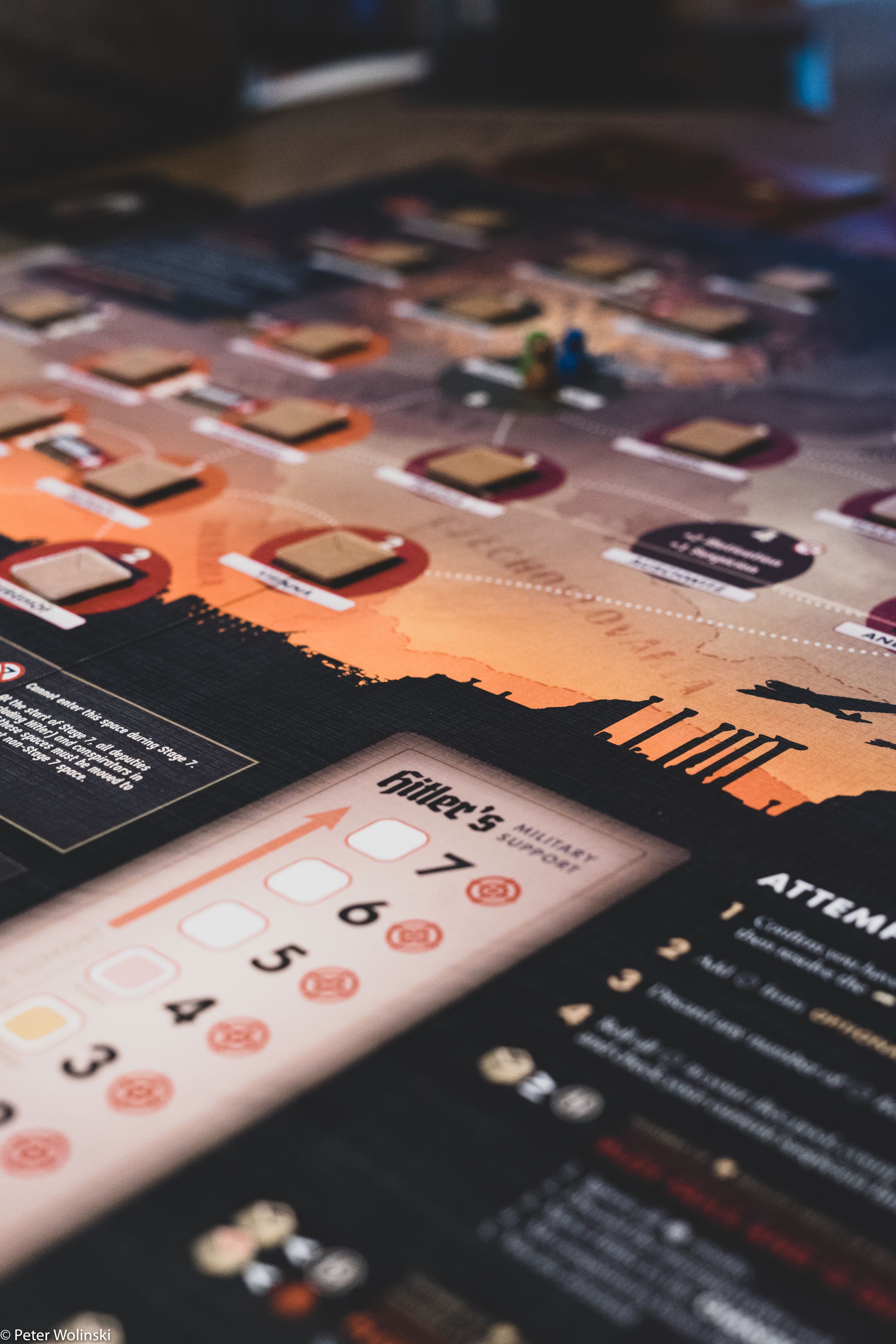
In the end, my preconceptions were borne out. Board gaming is definitely still a nerd sport. But I had seen that being geeky and being cool aren’t mutually exclusive. The rammed cafe, full of a diverse cross-section of society, proved that much alone.
More importantly, my question about whether others should join in was answered with a resounding ‘yes’. There’s just so much about board gaming to love; whether it’s the tangibility, the variety of games, the easy socialising or the openness of the people involved. There really aren’t any downsides.

